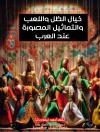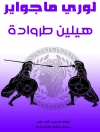Ever since Jesus walked the hills of Galilee and Paul travelled the roads of Asia Minor and Greece, Christianity has shown a remarkable ability to adapt itself to various social and cultural environments. Recent research has demonstrated that these environments can only be very insufficiently termed as ‘rural’ or ‘urban’. Neither was Jesus’ Galilee only rural, nor Paul’s Asia only ‘urban’. On the background of ongoing research on the diversity of social environments in the Early Empire, this volume will focus on various early Christian ‘worlds’ as witnessed in canonical and non-canonical texts. How did Early Christians experience and react to ‘rural’ and ‘urban’ life? What were the mechanisms behind this adaptability?
Papers will analyze the relation between urban Christian beginnings and the role of the rural Jesus-tradition. In what sense did the image of Jesus, the ‘Galilean village Jew’, change when his message was carried into the cities of the Mediterranean world from Jerusalem to Athens or Rome? Papers will not only deal with various personalities or literary works whose various attitudes towards urban life became formative for future Christianity. They will also explore the different local milieus that demonstrate the wide range of Christian cultural perspectives.
लेखक के बारे में
Jürgen Zangenberg ist Professor für Neues Testament und Frühchristliche Literatur an der Universität Leiden.












